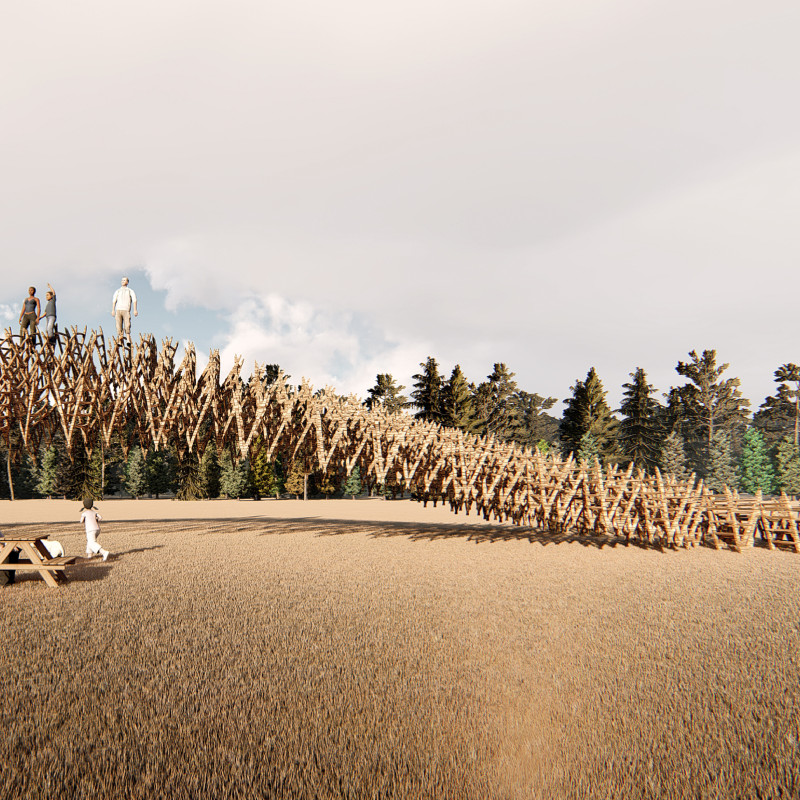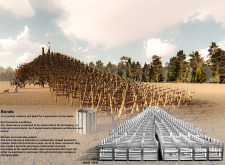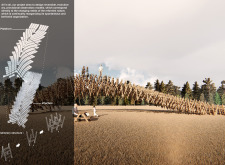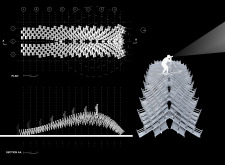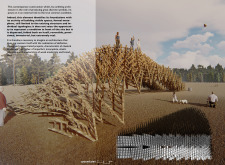5 key facts about this project
The design centers on the theme of "Bonds," situated in a thoughtfully chosen landscape that enhances its role as an observatory. It reflects a conversation between the structure and its environment, combining elements of memory with contemporary ideas. The aim is to create a space that fits well within its ecological context while promoting innovation and interaction.
Modular and Evolvable System
The observatory features a modular system defined by ladder-like parametric modules. Each module has a unique function, allowing the structure to adapt easily to the needs of users. This flexibility is not just about aesthetics; it encourages dynamic interactions with the environment. The ability to extend or narrow the tower showcases an approach that moves beyond conventional fixed forms, highlighting the importance of adaptability in design.
Environmental Responsiveness
Attention to environmental conditions is crucial to the design. It balances the structure with the surrounding landscape. This awareness reflects a commitment to sustainability, making the most of the local climate and natural features. The architecture not only interacts with its environment but also enhances the user experience by promoting engagement with the natural surroundings.
Critique of Traditional Norms
The project questions traditional architectural practices by embracing a reversible and provisional approach. It steers away from rigid, monumental designs to support a model that appreciates flexibility and impermanence. This perspective encourages the use of elastic systems that can adjust to shifting needs, allowing for diverse functions and experiences within the space. The observatory becomes a place for exploration and discovery rather than being constrained by strict definitions.
Careful attention is given to the essential elements that shape human experiences, such as light, sound, and movement. These details work together, creating a rich atmosphere where natural features can flow through the modular forms of the observatory.


